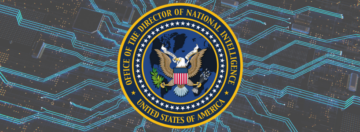2014 Security Clearance Reform Efforts by Congress
Congressional lawmakers have been busy this year trying to push through several new changes to security clearance oversight and processes. As is usual in Washington politics, a number of proposals were generated to create the appearance that actual reform was the main goal. A recent article posted by Defenseone.com discussed the various proposals from Capitol Hill and outlined their current status.
– The National Defense Authorization Act (NDAA) signed into law in FY2014 established a task force to enhance coordination and cooperation among federal background checkers and state and local authorities.
– The Office of Personnel Management (OPM) Inspector General Act was enacted by President Obama in February 2014 enabling the IG to use its revolving fund to investigate cases in which the integrity of a background check may have been compromised, which in turn provides OPM more oversight over the investigation process.
– The Security Clearance Accountability and Reform (SCARE) Act was proposed in May 2014 and would prohibit federal employees found guilty of compromising the integrity of a background investigation from conducting future investigations, and would make the manipulation a fireable offense. It has yet to be voted on by the Senate.
– The Clearance and Over-Classification Reform and Reduction (CORRECT) Act was proposed in July 2014 and has yet to be voted on by either committee. If passed it would mandate a decrease in the number of individuals with a clearance by 10% to only those that actually need access to classified information. It would also address privacy concerns for employees subject to continuous evaluation programs.
– The Enhanced Security Clearance Act was proposed in September 2014 with the intent to change the continuous evaluation process to incorporate automated and random searches into public records and social medias sites of clearance holders at least twice every five years.
– The Preventing Conflict of Interest with Contractors Act was proposed in September 2014 and would prohibit a contractor from conducting a quality review of its own background checks.
It is difficult to measure if any real progress has been made regarding security clearance reform since the incidents (Alexis and Snowden) that triggered this rush of new bills, and with Congress recessed until November, results may not be apparent until well into 2015.

